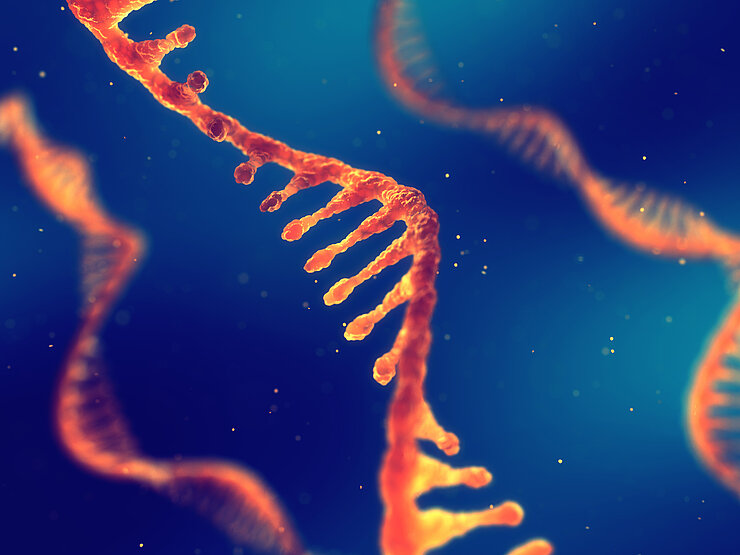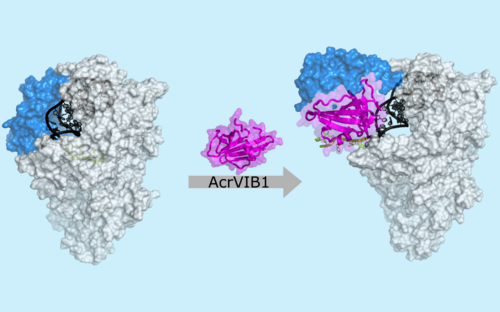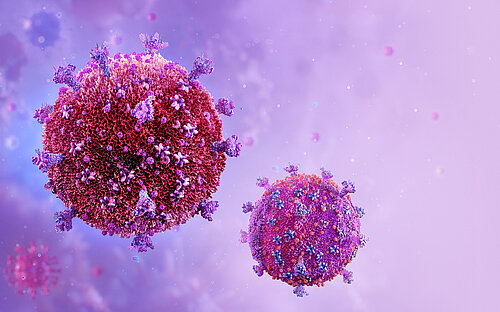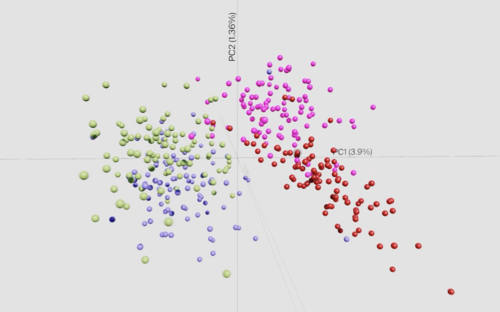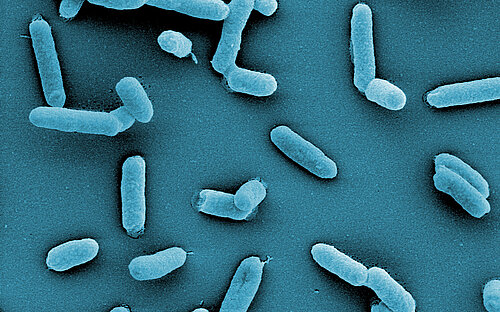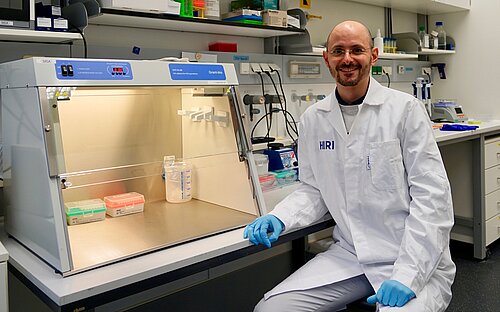RNA biology opens new ways to fight infections
Ribonucleic acid, or RNA for short, is a jack-of-all-trades. While DNA serves as the blueprint of life, RNA is the versatile tool that brings this blueprint to life. This remarkable molecule—composed of the nucleic bases adenine, guanine, cytosine, and uracil linked by a sugar-phosphate backbone—ensures that proteins are made, that cellular processes run smoothly, and that gene expression is regulated to meet the needs of the cell. This is true not only for our own cells, but also for the myriad of pathogens we encounter every day, from bacteria like Salmonella or Escherichia coli to viruses like SARS-CoV-2 or influenza. The RNA composition of a cell provides a real-time snapshot of its state, both in health and disease. Thanks to recent technological advances, researchers can now efficiently analyze this ‘RNA expression atlas’, even down to the level of a single cell, making it easier to detect and understand a disease state.
Knowledge of the diverse functions and properties of RNA has also paved the way for a new form of RNA-based medicine. From infections, cancer, neurodegeneration, metabolic disorders to rare genetic diseases, RNA promises new ways to improve patient lives and cure disease. Its unique structure and biochemical properties make RNA an ideal substrate for the design of drugs, vaccines, and bioengineering tools, thanks to the well-understood rules of complementary base pairing that determine its binding affinity and specificity. The rapid development of life-saving messenger RNA (mRNA) vaccines against SARS-CoV-2 is just one prominent example of the transformative potential of RNA in modern medicine. “The mRNA vaccine against COVID-19 very clearly demonstrates how therapeutic agents based on ribonucleic acids can be developed and customized very quickly. We want to take advantage of this programmability and create new tailor-made RNA therapeutics to combat infectious diseases,” explains Jörg Vogel, director of the HZI site Helmholtz Institute for RNA-based Infection Research (HIRI) and head of the department “RNA Biology of Bacterial Infections”.
We want to take advantage of the programmability and create new tailor-made RNA therapeutics to combat infectious diseases.

Base sequence as the key to RNA therapeutics
For therapeutic intervention, the unique nucleotide sequence of each RNA molecule provides a precise target for the development of RNA-based drugs. Unlike traditional drug discovery, which involves extensive screening to identify lead compounds that interact with proteins, RNA therapeutics can be rationally designed using established principles of complementary base pairing. Coupled with advances in RNA delivery technologies, the potential of RNA research to advance both diagnostic tools and therapeutic strategies in the treatment of disease is immense.
One promising application is in tackling the escalating crisis of antimicrobial resistance. Researchers at the HIRI are exploring the use of short antisense oligonucleotides that bind to bacterial RNA and selectively block the production of proteins essential for bacterial survival. This programmable approach allows precise targeting of drug-resistant strains, virulence factors, or emerging pathogens while protecting the native microbiome.
Another remarkable example of how RNA biology is transforming science and medicine is the CRISPR-Cas technology. This revolutionary tool, based on a natural bacterial defense system, allows scientists to precisely edit genes in living organisms. Using RNA as a guide, CRISPR-Cas can target specific sequences in DNA to cut, modify or replace genes. This technology can be used to treat genetic disorders, fight bacterial and viral infections, and even modulate the human microbiome to improve health.
In summary, RNA biology is driving breakthroughs that have the power to revolutionize medicine and biotechnology and address today's global health challenges.
(asp)
Status: April 2025
Involved research groups
-
Single-cell Analysis
 Prof Dr Antoine-Emmanuel Saliba
Prof Dr Antoine-Emmanuel Saliba -
Genome Architecture and Evolution of RNA Viruses
 Dr Redmond Smyth
Dr Redmond Smyth -
Integrative Informatics for Infection Biology
 Prof Lars Barquist
Prof Lars Barquist -
Clinical Bioinformatics
 Prof Dr Andreas Keller
Prof Dr Andreas Keller -
Complexes in Phage-infected Cells
 Dr Milan Gerovac
Dr Milan Gerovac -
LncRNA and Infection Biology
 Prof Dr Mathias Munschauer
Prof Dr Mathias Munschauer -
Molecular Principles of RNA Phages
 Jun Prof Dr Jens Hör
Jun Prof Dr Jens Hör -
Recoding Mechanisms in Infections
 Prof Neva Caliskan
Prof Neva Caliskan -
RNA Biology of gram-positive bacteria
 Prof Dr Franziska Faber
Prof Dr Franziska Faber -
RNA Biology of bacterial infections
 Prof Dr Jörg Vogel
Prof Dr Jörg Vogel -
RNA Synthetic Biology
 Prof Dr Chase Beisel
Prof Dr Chase Beisel -
Host-Pathogen-Microbiota Interactions
 Prof Dr Alexander Westermann
Prof Dr Alexander Westermann
